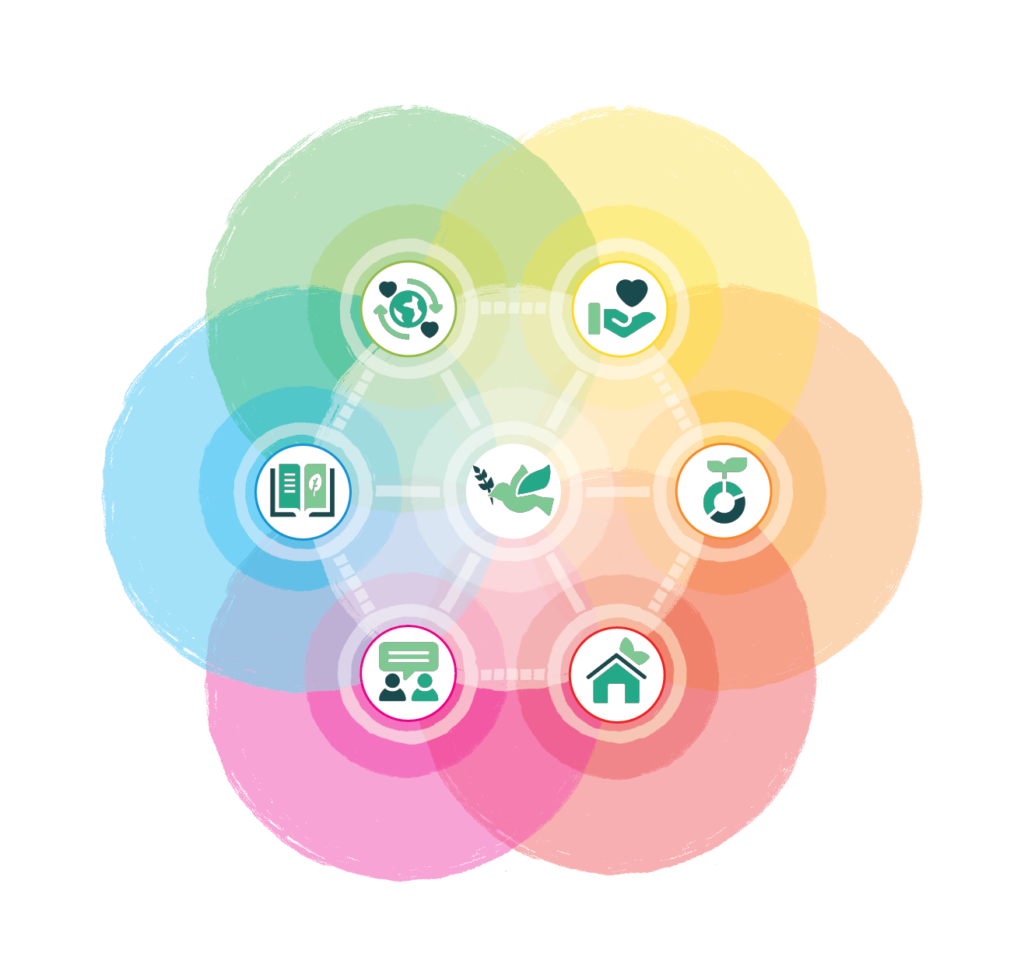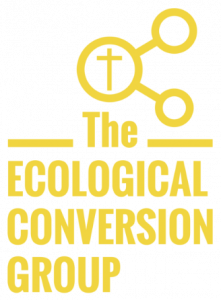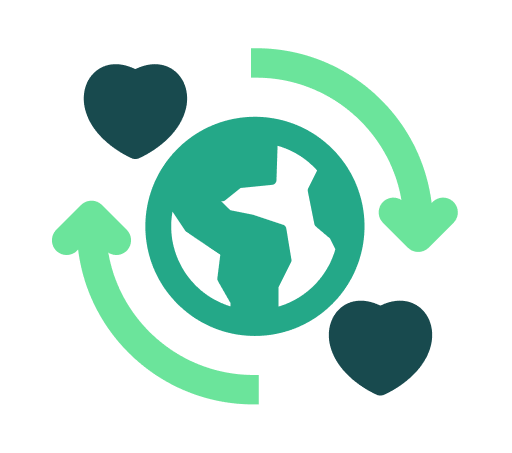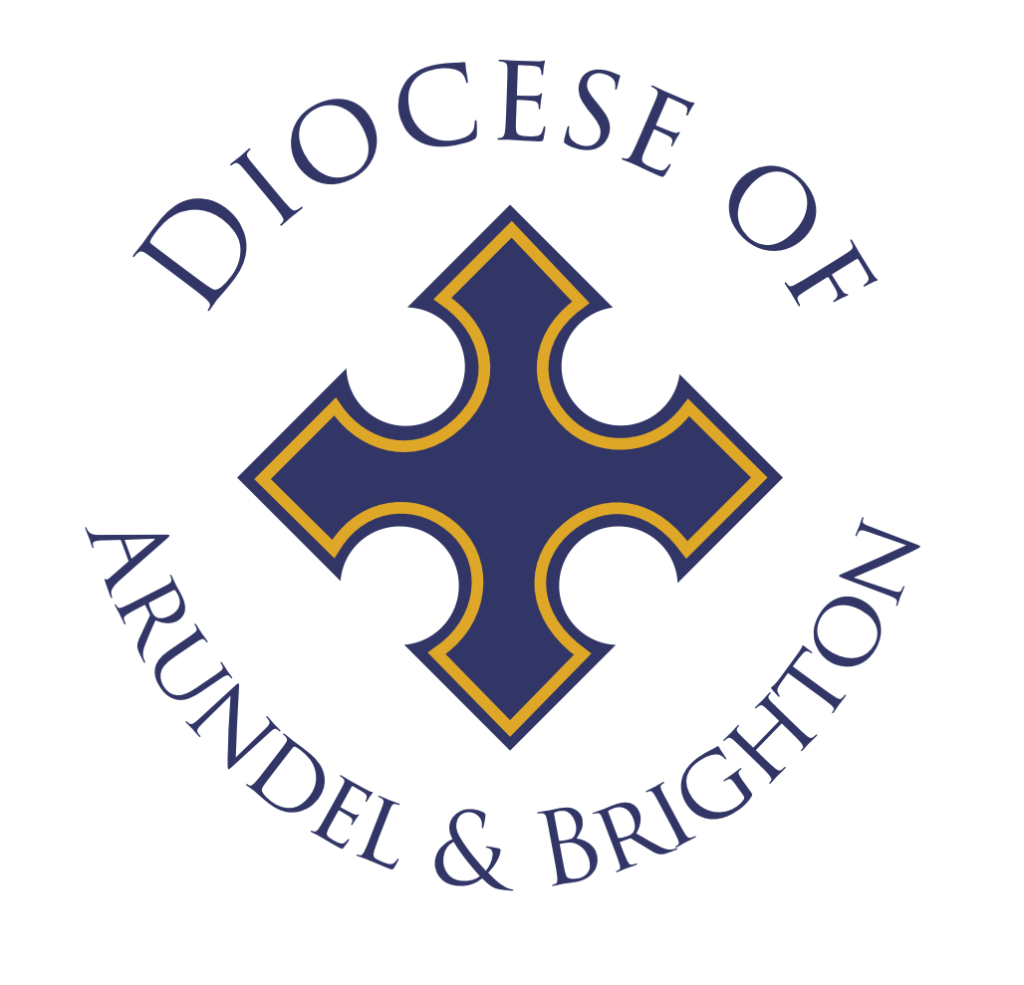ABOUT

Mission
‘The Journey to 2030’ is a lay-run project that supports the Church and its wider community to respond to the cry of the earth and the poor. Our mission is:
How to get involved
Stopping climate change is about monumentally more than reducing carbon. It is about a complete re-imagining of the way we see and interact with the world.
Issues like modern slavery, climate change, biodiversity loss, and a lack of concern for working conditions, even loneliness and disregard for the old or unborn are all symptoms of a wider crisis and are all inter-connected.
Our society can hardly be considered functional, with individualism and consumerism being considered normal. This ‘normality’ is created by institutions, infrastructures and big business and to a large extent frames our individual choices. These choices often further enforce this destructive ‘normality’ by our consent.
Our society sits within our natural world. A functional or dysfunctional society leads to a functional or dysfunctional environment and vice versa. Local and global issues become inseparable.
On our own, escaping this spiritually, socially and environmentally destructive pattern can seem impossible.
Together it is possible and exciting. This is why The Journey to 2030 project concentrates on building caring communities.
“The external deserts in the world are growing, because the internal deserts have become so vast”.
Pope Benedict XVI
VISION
“What would you like your community to look like by the year 2030?”
What if our communities could help rebuild society? What effect would this have on people and our planet? How would getting involved in community projects help strengthen my relationships with God and all He has created?
How could our Church communities and institutions encourage new norms and infrastructures that lead to behaviour consistent with our faith, and work towards a society that more closely resembles the Kingdom of God?
"The ecological conversion needed to bring about lasting change is also a community conversion."
Pope Francis, Laudato Si'

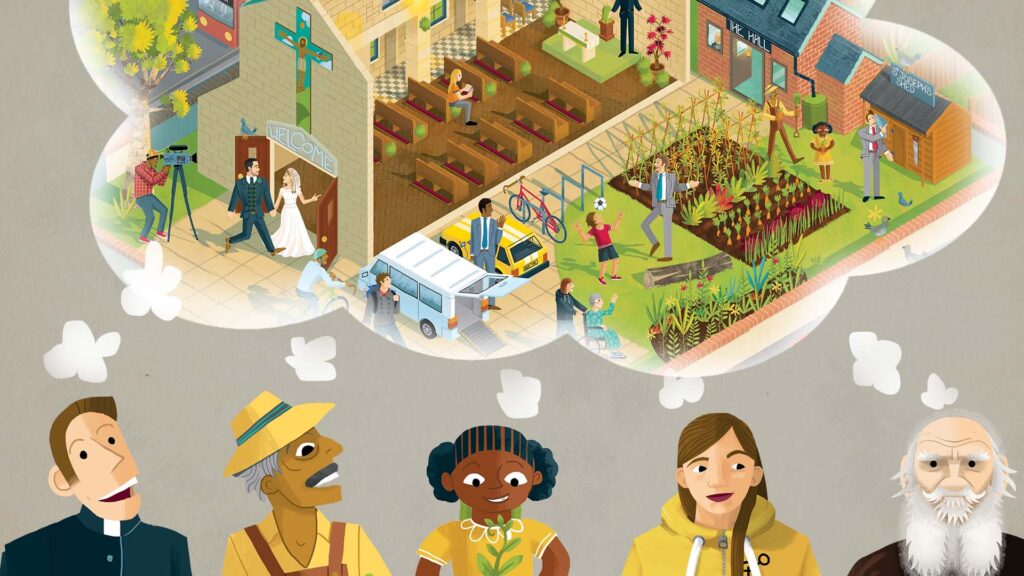
Communities are places of encounter, where we share beliefs, dreams, values, resources and shared interest in the places we inhabit, where we are not alone in our actions. They are places of a wealth of cultures, experience, skills and knowledge, where relationships are forged with civil society, business and government.
"Around these community actions, relationships develop or are recovered and a new social fabric emerges. Thus, a community can break out of the indifference induced by consumerism."
Pope Francis, Laudato Si'
What if Civil Society comprised local people and institutions working together, in shared concern for the forgotten poor and the planet, to build local stability and resilience against the shifting tides of the market, the state and technology?
“If we wait for governments, it will be too late. If we act as individuals, it will be too little. But if we act as communities, it might just be enough, and it might just be in time.”
Rob Hopkins, Founder of the transition Town Movement
Principles
This project, inspired by Catholic Social Thought is focused around two key principles:
‘Ecology’ refers primarily to biological networks of relationships among living things. By extension, it can be used of other kinds of relational networks, e.g. ‘social ecology’ or ‘human ecology’. ‘Integral ecology’ is the reality that such networks are themselves interconnected, so that, for example, a flourishing or dysfunctional human society with contribute to a flourishing or dysfunctional biological environment, and vice versa.
‘Integral ecology’ is the reality that everything is connected. Nothing is in isolation.
‘Ecological conversion’ is a commitment, inspired by faith, to change our lives so as to help heal the threefold rupture caused by sin, with God, with other human beings, and with the natural world.
"If you are right by Him you will inevitably be right with your fellow creatures, just as if all the spokes of a wheel are fitted rightly into the hub and the rim they are bound to be in the right position to one another"
C.S. Lewis Mere Christianity

Who are we?
The Journey to 2030 is coordinated by The Ecological Conversion Group, which has been working since 2017, founded by John Paul, Edward and Eleanor who were encouraged by Pope Francis’s encyclical letter: “Laudato Si’” and set out to work to help the Church put it into practice. Now a registered Charity, we work with many social and environmental networks, both in the UK and abroad.

Coordination team

Eleanor Margetts
Ellie is in charge of operations and coordination, as well as sifting through JP’s hairbrained schemes. She comes form a background of Sustainable Development.



John Paul de Quay
John Paul de Quay, is creative director of The Journey to 2030. Specialises in wild ideas and hairbrained schemes. He has a background in Biology and illustration.



Edward de Quay
Edward de Quay, co-founder, ECG’s sounding board. If he gets it we know it works. He comes from a background in Geography and community work.



Eleanor Margetts
Ellie is in charge of operations and coordination, as well as sifting through JP’s hairbrained schemes. She comes form a background of Sustainable Development.



John Paul de Quay
John Paul de Quay, is creative director of The Journey to 2030. Specialises in wild ideas and hairbrained schemes. He has a background in Biology and illustration.



Edward de Quay
Edward de Quay, co-founder, ECG’s sounding board. If he gets it we know it works. He comes from a background in Geography and community work.
Goals
We have fully embraced the Laudato Si’ goals, created by the Vatican. They help us to see the interconnections between things and the need for an integrated response centred on spirituality.
The Laudato Si’ goals help us to see that “ An integral ecology is also made up of simple daily gestures which break with the logic of violence, exploitation and selfishness.”, and that “Love, overflowing with small gestures of mutual care, is also civic and political, and it makes itself felt in every action that seeks to build a better world. Love for society and commitment to the common good are outstanding expressions of a charity which affects not only relationships between individuals but also “macro-relationships, social, economic and political ones”. That is why the Church set before the world the ideal of a “civilization of love”.” Laudato Si’ 231
Our methods
BUILD COMMUNITY
The project brings together a national community by uniting our efforts under THE JOURNEY TO 2030 banner. This helps us recognise the long term effort needed and that individuals, parishes, dioceses and religious communities are not alone in their efforts. It also helps us to recognise that we each have an important role to play in the Church’s ‘journey’ of change.
By sharing inspiring stories of hope and action, the project enables us to see that our efforts are never futile, and that we are part of a great movement!
Through the website, The Journey to 2030 aims to provide the necessary resources and networks for parishes, individuals and dioceses to engage with the urgent challenge of our interconnected ecological and social crises.
It aims to promote and support community building as a primary objective.
CREATE both URGENCY and a long term goal
We are already seeing the devastating effects of climate change and environmental degradation on people and communities all over the world and can’t afford to wait any longer. By setting “2030” as our long-term target for change, The Journey to 2030 is a ticking clock to spur our Church and its communities into action!
Why did we choose the year 2030?
2030 is an important date for our planet.
The Intergovernmental Panel on Climate Change (IPCC) says that unless we have, at the very least, halved global carbon emissions by 2030, we run the risk of reaching tipping points in our climate that will be very difficult, if not impossible, to return from. You can read the report on the IPCC website.
2030 is also the date the United Nations has set to meet the Sustainable Development Goals.
“The Sustainable Development Goals are the blueprint to achieve a better and more sustainable future for all. They address the global challenges we face, including those related to poverty, inequality, climate change, environmental degradation, peace and justice. The 17 Goals are all interconnected, and in order to leave no one behind, it is important that we achieve them all by 2030.”
We, the Church, need a long-term target, this is not a problem we will fix overnight and requires a sustained effort. Our own bishops in England and Wales have acknowledged the need to engage over the next decade on this “long path to renewal.” (link to statement)
PROVIDE EDUCATION
In order to make real change, we must develop our understanding of the links between our ecological and social crises and causes behind them. Much work is needed, both at a scientific and a theological level, to ensure that each of us is made aware of the complicated nature of the challenge before us, and of how that relates to our role as Christians. The Journey to 2030, through sharing of expertise across its networks in a simple way, enables us to learn more about the problems we are facing, and invites us into a deep personal and societal reflection on our place in God’s creation.
ENCOURAGE ECOLOGICAL CONVERSION
‘Ecological conversion’ is a commitment, inspired by faith, to change our lives so as to help heal the threefold rupture caused by sin, with God, with other human beings, and with the natural world.
The ecological and social crises are also spiritual crises. For too long we have been placing objects or convenience in the place of God, and at the expense of His creation; our global family and the planet which sustains us. When faced with the reality of our planet’s interconnected crises we need to change our habits or we risk becoming inconsistent with the most basic pillars of our faith.
In order to create long lasting societal change we need to build new convictions and attitudes based on “our common origin, of our mutual belonging, and of a future to be shared with everyone.”
ACTION STATIONS


Write to us
Do you have an inspiring story that you would like us to feature? Write to The Journey to 2030 at info@journeyto2030.org or click the link below.
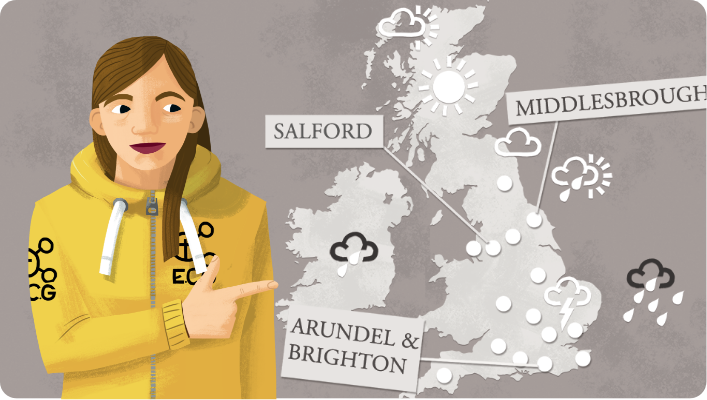

FIND A LOCAL NETWORK
Find your diocese on the map and click to discover groups and contacts to support you in your diocese.


SIGN UP TO OUR MAILING LIST
Let us keep you in contact so that we can send you all the latest news and alert you to new features, blogs and more…
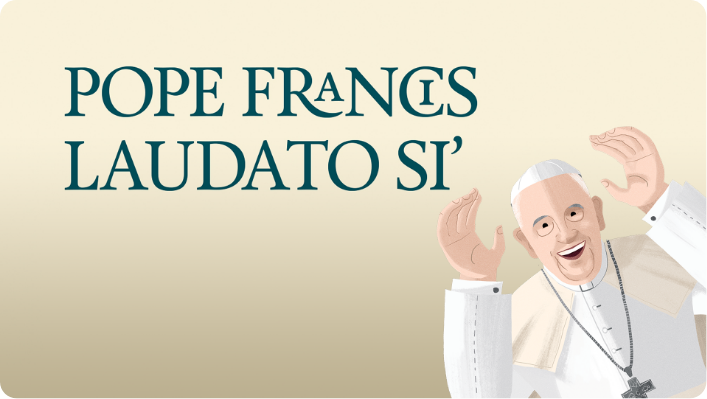

read laudato si'
Read the document that inspired The Journey to 2030.












